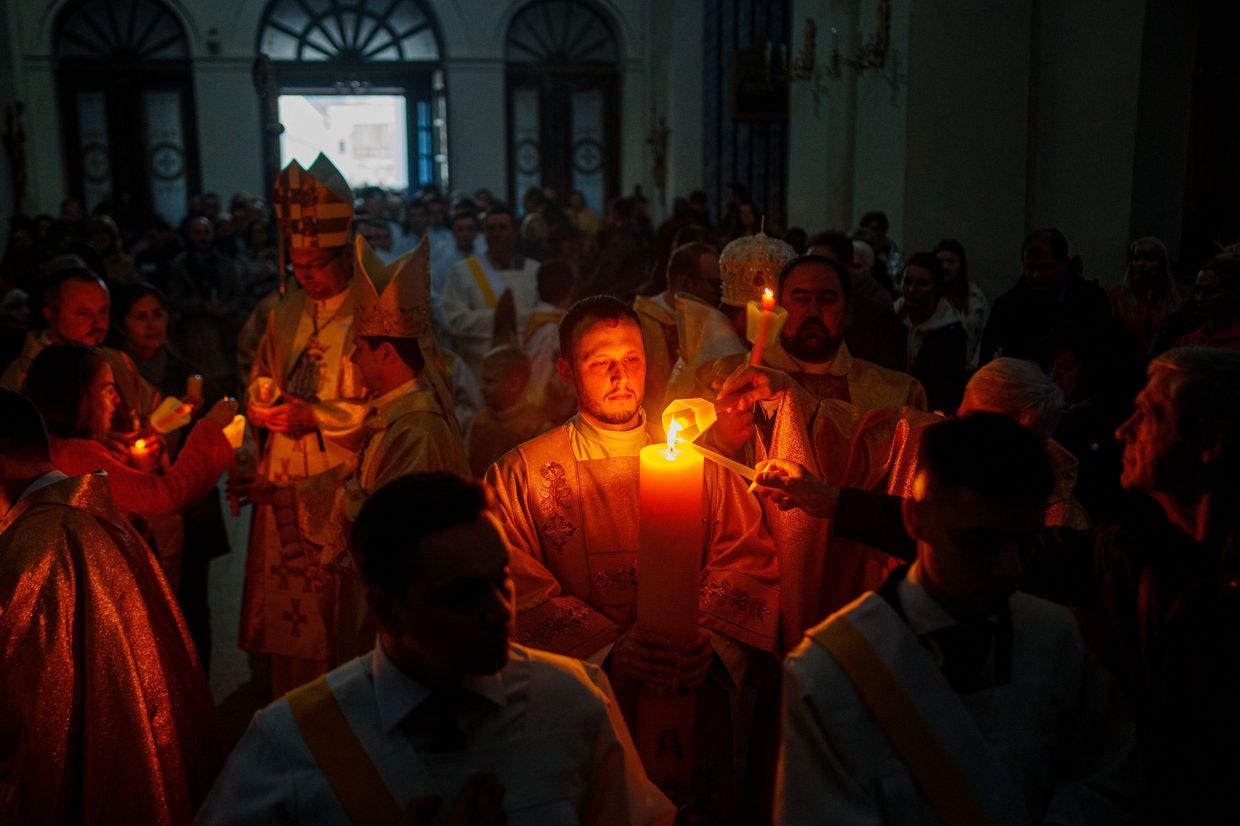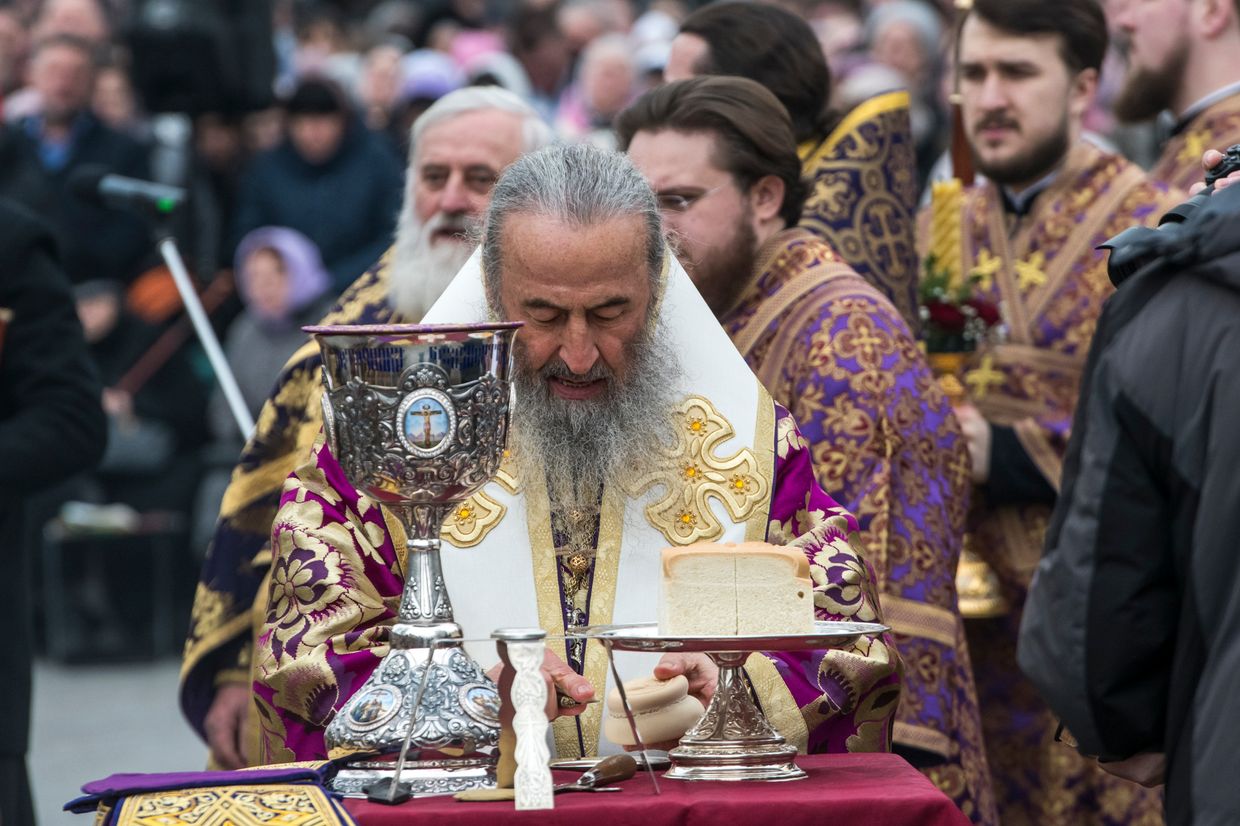Zelensky signs law potentially banning Moscow-linked church

President Volodymyr Zelensky signed a bill on Aug. 24 banning activities of religious organizations connected to Russia.
The bill was passed by the parliament four days earlier.
The legislation could effectively prohibit the activities of the Ukrainian Orthodox Church of the Moscow Patriarchate (UOC-MP), which is legally subordinate to the Russian Orthodox Church.
The UOC-MP has been suspected of links and sympathies to Russia throughout the full-scale war. It is not to be confused with the autocephalous (autonomous) Orthodox Church of Ukraine, which is fully separate from Moscow.
A number of clergymen of the UOC-MP have been accused of collaborating with Russia and justifying Russian aggression, including bishops and other high-ranking members.
Over 100 UOC-MP clergy members have come under criminal investigation since the outbreak of the full-scale war, the Security Service of Ukraine's (SBU) press service told the Kyiv Independent. Almost 50 of them have been charged, and sentences have been issued in 26 cases, the SBU said.
The law enters into force 30 days after its publication, but UOC-MP communities will have nine months to fully break ties with the Russian church, lawmaker Yaroslav Zhelezniak explained.
The bill was initially registered in the parliament in January 2023, shortly after extensive searches by security authorities uncovered pro-Kremlin propaganda, Russian passports, and xenophobic literature at the church's premises.
The parliament supported the bill in the first reading in October 2023.
The legislative process was associated with some controversies. Last month, several opposition lawmakers blocked the parliament's rostrum after the governing party had not brought the issue to the floor.
The UOC-MP said that it had always acted within the framework of Ukrainian legislation and claimed it had severed ties with the Russian Orthodox Church, the leading church in Russia seen as a close ally of Vladimir Putin's regime.
This declaration has been widely disputed in Ukraine as a merely symbolic step and was boycotted by the Russian church.
Russian propaganda has sought to portray the government's steps against the Moscow-linked church as "persecution of Christians," a narrative that has been adopted by Ukraine-skeptic voices in the U.S.
Orthodox Christianity remains the most widely spread and freely practiced religion in Ukraine, while the steps against the church are based on evidence of its collaboration with Russia.
Once a dominant religious group in Ukraine, many Moscow Patriarchate communities have switched allegiance to independent churches, namely the Orthodox Church of Ukraine, in the past few years.

















